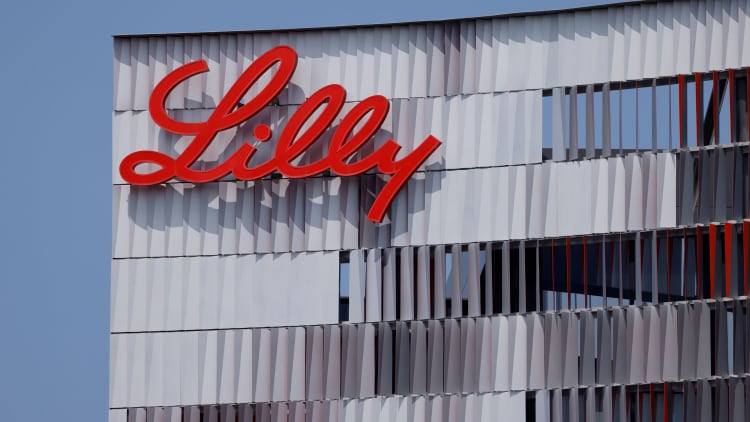
Eli Lilly said on Monday a trial of its experimental Alzheimer's drug donanemab showed it slowed by about a third the rate of decline in a combined measure of cognition and function in early-stage victims of the disease.
Shares of Lilly soared nearly 20% in premarket trading on the report.
The drug is an antibody designed to remove clumps of the Alzheimer's-related protein beta amyloid from the brain.
Lilly said the mid-stage trial of 272 patients met its main goal of showing a statistically significant change in clinical decline over 18 months.
Donanemab targets a type of beta amyloid known as N3pG which Lilly believes can be rapidly cleared, enabling short-term, but durable, treatment.
Patients in the study stopped receiving donanemab and were switched to placebo once their brain plaques reached levels seen in healthy people — a process that took just a few months for some patients.
"This study shows that the presence of amyloid is an important accelerant of Alzheimer's disease," Daniel Skovronsky, Lilly's chief scientific officer, told Reuters.
The results also "tell us that there are other things at play," he added, saying additional strategies were needed to fully combat Alzheimer's.
A brain swelling side effect, known as ARIA-E, occurred in 27% of patients treated with donanemab, the company said.
"Alzheimer's disease is uniformly fatal ... I think this safety profile matched with this efficacy profile is something that we can be excited about," Skovronsky said.
Lilly said donanemab also showed positive results in the trial's secondary endpoints measuring cognition and function, but did not reach statistical significance on all of them.
The company is continuing to study the drug in a second, 500-patient trial.
Lilly, along with companies like Biogen Inc and Eisai Co Ltd, is one of the last large drugmakers pursuing treatments for Alzheimer's — a disease that afflicts nearly 6 million Americans and millions more worldwide.
The U.S. Food and Drug Administration is reviewing Biogen's application for aducanumab, which also targets amyloid plaques.
Biogen said one of its two pivotal aducanumab studies showed a statistically significant benefit in slowing cognitive and functional decline, but a second trial missed that goal, showing benefit only for some patients who got a high dose for at least 10 months.
Lilly said full trial results would be presented at a future medical meeting and submitted for publication in a peer-reviewed clinical journal.

